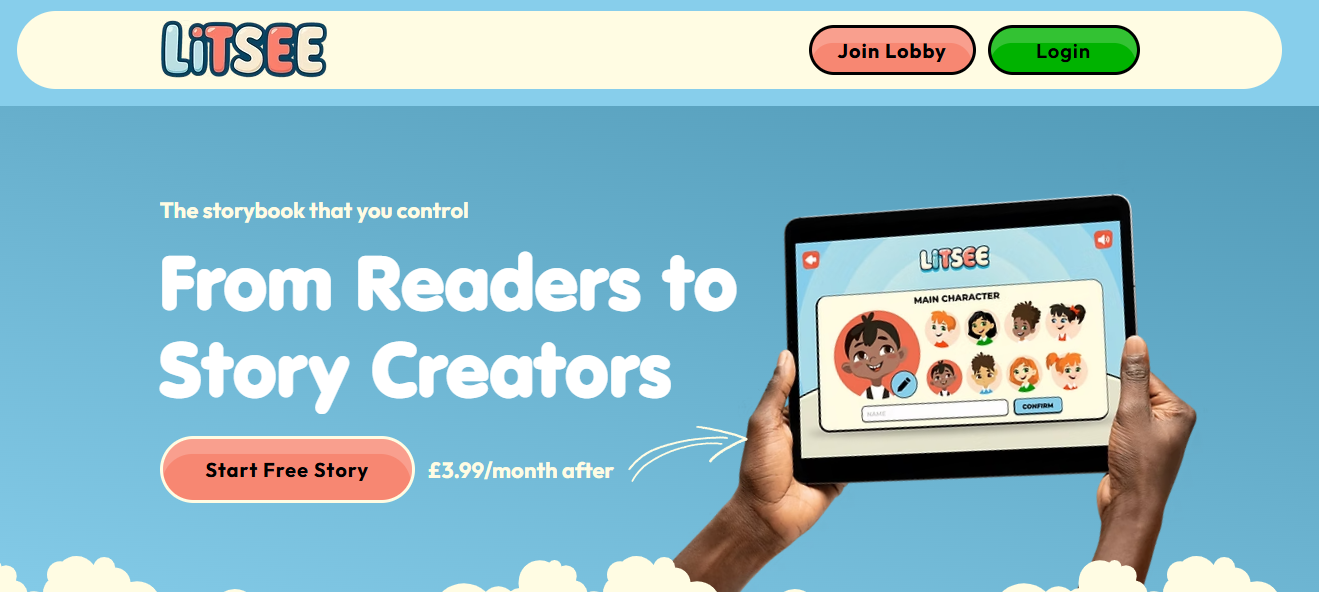The Enduring Solitude Of Combat Vets:
Retired Army Special Forces Sgt. Maj. Alan Farrell is one of the more interesting people in this country nowadays, a decorated veteran of the Vietnam War who teaches French at VMI, reviews films and writes poetry. Just your typical sergeant major/brigadier general with a Ph.D. in French and a fistful of other degrees.
This is a speech that he gave to Vets at the Harvard Business School last Veterans' Day. I know it is long but well worth the read:
--------
"Ladies and Gentlemens:
Kurt Vonnegut -- Corporal Vonnegut -- famously told an assembly like this one that his wife had begged him to "bring light into their tunnels" that night. "Can't do that," said Vonnegut, since, according to him, the audience would at once sense his duplicity, his mendacity, his insincerity... and have yet another reason for despair. I'll not likely have much light to bring into any tunnels this night, either.
The remarks I'm about to make to you I've made before... in essence at least. I dare to make them again because other Veterans seem to approve. I speak mostly to Veterans. I don't have much to say to them, the others, civilians, real people. These remarks, I offer you for the reaction I got from one of them, though, a prison shrink. I speak in prisons a lot. Because some of our buddies wind up in there. Because their service was a Golden Moment in a life gone sour. Because... because no one else will.
In the event, I've just got done saying what I'm about to say to you, when the prison psychologist sidles up to me to announce quietly: "You've got it." The "it," of course, is Post Stress Traumatic Traumatic Post Stress Disorder Stress... Post. Can never seem to get the malady nor the abbreviation straight. He's worried about me... that I'm wandering around loose... that I'm talking to his cons. So worried, but so sincere, that I let him make me an appointment at the V.A. for "diagnosis." Sincerity is a rare pearl.
So I sulk in the stuffy anteroom of the V.A. shrink's office for the requisite two hours (maybe you have), finally get admitted. He's a nice guy. Asks me about my war, scans my 201 File, and, after what I take to be clinical scrutiny, announces without preamble: "You've got it." He can snag me, he says, 30 percent disability. Reimbursement, he says, from Uncle Sam, now till the end of my days. Oh, and by the way, he says, there's a cure. I'm not so sure that I want a cure for 30 percent every month. This inspires him to explain. He takes out a piece of paper and a Magic Marker™. Now: Anybody who takes out a frickin' Magic Marker™ to explain something to you thinks you're a bonehead and by that very gesture says so to God and everybody.
Anyhow. He draws two big circles on a sheet of paper, then twelve small circles. Apples and grapes, you might say. In fact, he does say. The "grapes," he asserts, stand for the range of emotional response open to a healthy civilian, a normal person: titillation, for instance, then amusement, then pleasure, then joy, then delight and so on across the spectrum through mild distress on through angst -- whatever that is -- to black depression. The apples? That's what you got, traumatized veteran: Ecstasy and Despair. But we can fix that for you. We can make you normal.
So here's my question: Why on earth would anybody want to be normal?
And here's what triggered that curious episode:
The words of the prophet Jeremiah:
My bowels. My bowels. I am pained at my very heart; my heart maketh a noise in me... [T]hou hast heard, O my soul, the sound of the trumpet, the alarm of war. Destruction upon destruction is cried; for the whole land is spoilt and my curtains... How long shall I see the standard and hear the sound of the trumpet?
I dunno about Jeremiah's bowels... or his curtains, but I've seen the standard and heard the sound of the trumpet. Again. Civilians mooing about that "Thin Red Line of 'eroes" between them and the Darkness. Again. ‘Course it's not red any more. Used to be olive drab. Then treetop camouflage. Then woodland. Then chocolate chip. Now pixelated, random computer-generated. Multi-cam next, is it? Progress. The kids are in the soup. Again. Me? I can't see the front sights of me piece any more. And if I can still lug my rucksack five miles, I need these days to be defibrillated when I get there. Nope. I got something like six Honorable Discharges from Pharaoh's Army. Your Mom's gonna be wearing Kevlar before I do. Nope. This one's on the kids, I'm afraid, the next generation.
I can't help them. Not those who make the sacrifice in the desert nor those in the cesspool cities of a land that if two troopers from the One Oh One or two Lance Corporals could find on a map a few years ago, I'll be surprised. Nobody can help... except by trying to build a society Back Here that deserves such a sacrifice.
We gonna win the war? I dunno. They tell me I lost mine. I know I didn't start it. Soldiers don't start wars. Civilians do. And civilians say when they're over. I'm just satisfied right now that these kids, for better or worse, did their duty as God gave them the light to see it. But I want them back. And I worry not about the fight, but about the after: after the war, after the victory, after... God forbid... the defeat, if it come to that. It's after that things get tricky. After that a Soldier needs the real grit and wit. And after that a Soldier needs to believe. Anybody can believe before. During? A Soldier has company in the fight, in Kandahar or Kabul, Basra or Baghdad. It's enough to believe in the others during. But after... and I can tell you this having come home from a war: After ...a Soldier is alone. A batch of them, maybe... but still alone.
Years ago, maybe... when I was still in the Army, my A Team got the mission to support an Air Force escape and evasion exercise. Throw a bunch of downed pilots into the wilderness, let local guerrillas (us) feed them into a clandestine escape net and spirit them out by train just like in The Great Escape to... Baltimore, of all places. So we set up an elaborate underground network: farmhouses, caves, barns, pickup trucks, loads of hay where a guy can hide, fifty-five gallon drums to smuggle the evadees through checkpoints in. We've even cozened the Norfolk and Western Railroad out of a boxcar.
Sooooo... come midnight, with our escapees safely stowed in that car, we wait for a special train to make a detour, back onto the siding, hook it up, and freight the pilots off to Maree-land. Pretty realistic, seems to us.
Now, for safety's sake the Railroad requires a Line Administrator on site to supervise any special stop. Sure enough, just before midnight two suit-and-ties show up toting a red lantern. Civilians. We sniff at them disdainfully. One of them wigwags to the train. With a clank she couples the boxcar and chugs out into the night. The other guy -- frumpy Babbit from the front office -- shuffles off down the track and out onto a trestle bridge over the gorge. He stands there with his hands behind his back, peering up at the cloud-strewn summertime sky, a thousand bucks worth of Burberry overcoat riffling in the night breeze. I edge over respectfully behind him. Wait. He notices me after a while, looks back. "You know," he says, "Was on a night like this 40 years ago that I jumped into Normandy."
Who'da thought?
Who'da thought? Then I thought... back to right after my return from Vietnam. I'm working nights at a convenience store just down the road from this very spot. Lousy job. Whores, bums, burnouts, lowlifes. That's your clientele after midnight in a convenience store. One particular guy I remember drifts in every morning about 0400. Night work. Janitor, maybe. Not much to distinguish him from the rest of the early morning crowd of shadows shuffling around the place. Fingers and teeth yellowed from cigarette smoke. A weathered, leathered face that just dissolves into the colorless crowd of nobodies.
Never says a word. Buys his margarine and macaroni and Miller's. Plunks down his cash. Hooks a grubby hand around his bag and threads his way out of the place and down the street. Lost in another world. Like the rest of the derelicts. One night, he's fumbling for his keys, drops them on the floor, sets his wallet on the counter -- brown leather, I still remember -- and the wallet flops open. Pinned to the inside of it, worn shiny and smooth, with its gold star gleaming out of the center: combat jump badge from that great World War II... Normandy maybe, just like the suit-and-tie.
Who'da thought?
Two guys scarred Out There. Not sure just where or how even. You can lose your life without dying. But the guy who made it to the top and the guy shambling along the bottom are what James Joyce calls in another context "secret messengers." Citizens among the rest, who look like the rest, talk like the rest, act like the rest... but who know prodigious secrets, wherever they wash up and whatever use they make of them. Who know somber despair but inexplicable laughter, the ache of duty but distrust of inaction. Who know risk and exaltation... and that awful drop though empty air we call failure... and solitude! They know solitude.
Because solitude is what waits for the one who shall have borne the battle. Out There in it together... back here alone.
Alone to make way in a scrappy, greedy, civilian world "filching lucre and gulping warm beer," as Conrad had it. Alone to learn the skills a self-absorbed, hustling, modern society values. Alone to unlearn the deadly skills of the former -- and bloody -- business. Alone to find a companion -- maybe -- and alone -- maybe -- even with that companion over a lifetime... for who can make someone else who hasn't seen it understand horror, blackness, filth Incommunicado. Voiceless. Alone.
My Railroad president wandered off by himself to face his memories; my Store 24 regular was clearly a man alone with his.
For my two guys, it was the after the battle that they endured, and far longer than the moment of terror in the battle. Did my Railroad exec learn in the dark of war to elbow other men aside, to view all other men as the enemy, to "fight" his way up the corporate ladder just as he fought his way out of the bocages of Normandy? Did he find he could never get close to a wife or children again and turn his energy, perhaps his anger toward some other and solitary goal Did the Store/24 guy never get out of his parachute harness and shiver in an endless night patrolled by demons he couldn't get shut of? Did he haul out that tattered wallet and shove his jump badge under the nose of those he'd done wrong to, disappointed, embarrassed? Did he find fewer and fewer citizens Back Here who even knew what it was? Did he keep it because he knew what it was? From what I've seen -- from a distance, of course -- of success, I'd say it's not necessarily sweeter than failure -- which I have seen close up.
Well, that's what I said that woke up the prison shrink.
And I say again to you that silence is the reward we reserve for you and your buddies, for my Cadets. Silence is the sound of Honor, which speaks no word and lays no tread. And Nothing is the glory of the one who's done Right. And Alone is the society of those who do it the Hard Way, alone even when they have comrades like themselves in the fight. I've gotta hope as a teacher that my Cadets, as a citizen that you and your buddies will have the inner resources, the stuff of inner life, the values in short, to abide the brute loneliness of after, to find the courage to continue the march, to do Right, to live with what they've done, you've done in our name, to endure that dark hour of frustration, humiliation, failure maybe... or victory, for one or the other is surely waiting Back Here. Unless you opt for those grapes...
My two guys started at the same place and wound up at the far ends of the spectrum. As we measure their distance from that starting point, they seem to return to it: the one guy in the darkness drawn back to a Golden Moment in his life from a lofty vantage point; t'other guy lugging through God knows what gauntlet of shame and frustration that symbol of his Golden Moment. Today we celebrate your Golden Moment. While a whole generation went ganging after its own indulgence, vanity, appetite, you clung to a foolish commitment, to foolish old traditions; as Soldiers, Sailors, Pilots, Marines you honored pointless ritual, suffered the endless, sluggish monotony of duty, raised that flag not just once, or again, or -- as has become fashionable now -- in time of peril, but every single morning. You stuck it out. You may have had -- as we like to say -- the camaraderie of brothers or sisters to buck each other up or the dubious support (as we like to say... and say more than do, by the way) of the folks back home, us... but in the end you persevered alone. Just as alone you made that long walk from Out There with a duffle bag fulla pixelated, random computer-generated dirty laundry -- along with your bruised dreams, your ecstasy and your despair -- Back Here at tour's end.
And you will be alone, for all the good intentions and solicitude of them, the other, the civilians. Alone. But...together. Your generation, whom us dumbo civilians couldn't keep out of war, will bear the burden of a soldier's return... alone. And a fresh duty: to complete the lives of your buddies who didn't make it back, to confect for them a living monument to their memory.
Your comfort, such as it is, will come from the knowledge that others of that tiny fraction of the population that fought for us are alone but grappling with the same dilemmas -- often small and immediate, often undignified or humiliating, now and then immense and overwhelming -- by your persistence courting the risk, by your obstinacy clinging to that Hard Way. Some of you will be stronger than others, but even the strong ones will have their darker moments. Where we can join each other if not relieve each other, we secret messengers, is right here in places like this and on occasions like this -- one lousy day of the year, your day, my day, our day, -- in the company of each other and of the flag we served. Not much cheer in that kerugma. But there's the by-God glory.
"I know..." says the prophet Isaiah:
... I know that thou art obstinate, and thy neck is an iron sinew, and thy brow brass...I have shewed thee new things, even hidden things. Behold, I have refined thee, but not with silver; I have [refined] thee...in the furnace of affliction...
Well, all right, then. Why on earth would anybody want to be normal? Thanks for Listening and Lord love the lot of youse."
The Enduring Solitude Of Combat Vets:
Retired Army Special Forces Sgt. Maj. Alan Farrell is one of the more interesting people in this country nowadays, a decorated veteran of the Vietnam War who teaches French at VMI, reviews films and writes poetry. Just your typical sergeant major/brigadier general with a Ph.D. in French and a fistful of other degrees.
This is a speech that he gave to Vets at the Harvard Business School last Veterans' Day. I know it is long but well worth the read:
--------
"Ladies and Gentlemens:
Kurt Vonnegut -- Corporal Vonnegut -- famously told an assembly like this one that his wife had begged him to "bring light into their tunnels" that night. "Can't do that," said Vonnegut, since, according to him, the audience would at once sense his duplicity, his mendacity, his insincerity... and have yet another reason for despair. I'll not likely have much light to bring into any tunnels this night, either.
The remarks I'm about to make to you I've made before... in essence at least. I dare to make them again because other Veterans seem to approve. I speak mostly to Veterans. I don't have much to say to them, the others, civilians, real people. These remarks, I offer you for the reaction I got from one of them, though, a prison shrink. I speak in prisons a lot. Because some of our buddies wind up in there. Because their service was a Golden Moment in a life gone sour. Because... because no one else will.
In the event, I've just got done saying what I'm about to say to you, when the prison psychologist sidles up to me to announce quietly: "You've got it." The "it," of course, is Post Stress Traumatic Traumatic Post Stress Disorder Stress... Post. Can never seem to get the malady nor the abbreviation straight. He's worried about me... that I'm wandering around loose... that I'm talking to his cons. So worried, but so sincere, that I let him make me an appointment at the V.A. for "diagnosis." Sincerity is a rare pearl.
So I sulk in the stuffy anteroom of the V.A. shrink's office for the requisite two hours (maybe you have), finally get admitted. He's a nice guy. Asks me about my war, scans my 201 File, and, after what I take to be clinical scrutiny, announces without preamble: "You've got it." He can snag me, he says, 30 percent disability. Reimbursement, he says, from Uncle Sam, now till the end of my days. Oh, and by the way, he says, there's a cure. I'm not so sure that I want a cure for 30 percent every month. This inspires him to explain. He takes out a piece of paper and a Magic Marker™. Now: Anybody who takes out a frickin' Magic Marker™ to explain something to you thinks you're a bonehead and by that very gesture says so to God and everybody.
Anyhow. He draws two big circles on a sheet of paper, then twelve small circles. Apples and grapes, you might say. In fact, he does say. The "grapes," he asserts, stand for the range of emotional response open to a healthy civilian, a normal person: titillation, for instance, then amusement, then pleasure, then joy, then delight and so on across the spectrum through mild distress on through angst -- whatever that is -- to black depression. The apples? That's what you got, traumatized veteran: Ecstasy and Despair. But we can fix that for you. We can make you normal.
So here's my question: Why on earth would anybody want to be normal?
And here's what triggered that curious episode:
The words of the prophet Jeremiah:
My bowels. My bowels. I am pained at my very heart; my heart maketh a noise in me... [T]hou hast heard, O my soul, the sound of the trumpet, the alarm of war. Destruction upon destruction is cried; for the whole land is spoilt and my curtains... How long shall I see the standard and hear the sound of the trumpet?
I dunno about Jeremiah's bowels... or his curtains, but I've seen the standard and heard the sound of the trumpet. Again. Civilians mooing about that "Thin Red Line of 'eroes" between them and the Darkness. Again. ‘Course it's not red any more. Used to be olive drab. Then treetop camouflage. Then woodland. Then chocolate chip. Now pixelated, random computer-generated. Multi-cam next, is it? Progress. The kids are in the soup. Again. Me? I can't see the front sights of me piece any more. And if I can still lug my rucksack five miles, I need these days to be defibrillated when I get there. Nope. I got something like six Honorable Discharges from Pharaoh's Army. Your Mom's gonna be wearing Kevlar before I do. Nope. This one's on the kids, I'm afraid, the next generation.
I can't help them. Not those who make the sacrifice in the desert nor those in the cesspool cities of a land that if two troopers from the One Oh One or two Lance Corporals could find on a map a few years ago, I'll be surprised. Nobody can help... except by trying to build a society Back Here that deserves such a sacrifice.
We gonna win the war? I dunno. They tell me I lost mine. I know I didn't start it. Soldiers don't start wars. Civilians do. And civilians say when they're over. I'm just satisfied right now that these kids, for better or worse, did their duty as God gave them the light to see it. But I want them back. And I worry not about the fight, but about the after: after the war, after the victory, after... God forbid... the defeat, if it come to that. It's after that things get tricky. After that a Soldier needs the real grit and wit. And after that a Soldier needs to believe. Anybody can believe before. During? A Soldier has company in the fight, in Kandahar or Kabul, Basra or Baghdad. It's enough to believe in the others during. But after... and I can tell you this having come home from a war: After ...a Soldier is alone. A batch of them, maybe... but still alone.
Years ago, maybe... when I was still in the Army, my A Team got the mission to support an Air Force escape and evasion exercise. Throw a bunch of downed pilots into the wilderness, let local guerrillas (us) feed them into a clandestine escape net and spirit them out by train just like in The Great Escape to... Baltimore, of all places. So we set up an elaborate underground network: farmhouses, caves, barns, pickup trucks, loads of hay where a guy can hide, fifty-five gallon drums to smuggle the evadees through checkpoints in. We've even cozened the Norfolk and Western Railroad out of a boxcar.
Sooooo... come midnight, with our escapees safely stowed in that car, we wait for a special train to make a detour, back onto the siding, hook it up, and freight the pilots off to Maree-land. Pretty realistic, seems to us.
Now, for safety's sake the Railroad requires a Line Administrator on site to supervise any special stop. Sure enough, just before midnight two suit-and-ties show up toting a red lantern. Civilians. We sniff at them disdainfully. One of them wigwags to the train. With a clank she couples the boxcar and chugs out into the night. The other guy -- frumpy Babbit from the front office -- shuffles off down the track and out onto a trestle bridge over the gorge. He stands there with his hands behind his back, peering up at the cloud-strewn summertime sky, a thousand bucks worth of Burberry overcoat riffling in the night breeze. I edge over respectfully behind him. Wait. He notices me after a while, looks back. "You know," he says, "Was on a night like this 40 years ago that I jumped into Normandy."
Who'da thought?
Who'da thought? Then I thought... back to right after my return from Vietnam. I'm working nights at a convenience store just down the road from this very spot. Lousy job. Whores, bums, burnouts, lowlifes. That's your clientele after midnight in a convenience store. One particular guy I remember drifts in every morning about 0400. Night work. Janitor, maybe. Not much to distinguish him from the rest of the early morning crowd of shadows shuffling around the place. Fingers and teeth yellowed from cigarette smoke. A weathered, leathered face that just dissolves into the colorless crowd of nobodies.
Never says a word. Buys his margarine and macaroni and Miller's. Plunks down his cash. Hooks a grubby hand around his bag and threads his way out of the place and down the street. Lost in another world. Like the rest of the derelicts. One night, he's fumbling for his keys, drops them on the floor, sets his wallet on the counter -- brown leather, I still remember -- and the wallet flops open. Pinned to the inside of it, worn shiny and smooth, with its gold star gleaming out of the center: combat jump badge from that great World War II... Normandy maybe, just like the suit-and-tie.
Who'da thought?
Two guys scarred Out There. Not sure just where or how even. You can lose your life without dying. But the guy who made it to the top and the guy shambling along the bottom are what James Joyce calls in another context "secret messengers." Citizens among the rest, who look like the rest, talk like the rest, act like the rest... but who know prodigious secrets, wherever they wash up and whatever use they make of them. Who know somber despair but inexplicable laughter, the ache of duty but distrust of inaction. Who know risk and exaltation... and that awful drop though empty air we call failure... and solitude! They know solitude.
Because solitude is what waits for the one who shall have borne the battle. Out There in it together... back here alone.
Alone to make way in a scrappy, greedy, civilian world "filching lucre and gulping warm beer," as Conrad had it. Alone to learn the skills a self-absorbed, hustling, modern society values. Alone to unlearn the deadly skills of the former -- and bloody -- business. Alone to find a companion -- maybe -- and alone -- maybe -- even with that companion over a lifetime... for who can make someone else who hasn't seen it understand horror, blackness, filth Incommunicado. Voiceless. Alone.
My Railroad president wandered off by himself to face his memories; my Store 24 regular was clearly a man alone with his.
For my two guys, it was the after the battle that they endured, and far longer than the moment of terror in the battle. Did my Railroad exec learn in the dark of war to elbow other men aside, to view all other men as the enemy, to "fight" his way up the corporate ladder just as he fought his way out of the bocages of Normandy? Did he find he could never get close to a wife or children again and turn his energy, perhaps his anger toward some other and solitary goal Did the Store/24 guy never get out of his parachute harness and shiver in an endless night patrolled by demons he couldn't get shut of? Did he haul out that tattered wallet and shove his jump badge under the nose of those he'd done wrong to, disappointed, embarrassed? Did he find fewer and fewer citizens Back Here who even knew what it was? Did he keep it because he knew what it was? From what I've seen -- from a distance, of course -- of success, I'd say it's not necessarily sweeter than failure -- which I have seen close up.
Well, that's what I said that woke up the prison shrink.
And I say again to you that silence is the reward we reserve for you and your buddies, for my Cadets. Silence is the sound of Honor, which speaks no word and lays no tread. And Nothing is the glory of the one who's done Right. And Alone is the society of those who do it the Hard Way, alone even when they have comrades like themselves in the fight. I've gotta hope as a teacher that my Cadets, as a citizen that you and your buddies will have the inner resources, the stuff of inner life, the values in short, to abide the brute loneliness of after, to find the courage to continue the march, to do Right, to live with what they've done, you've done in our name, to endure that dark hour of frustration, humiliation, failure maybe... or victory, for one or the other is surely waiting Back Here. Unless you opt for those grapes...
My two guys started at the same place and wound up at the far ends of the spectrum. As we measure their distance from that starting point, they seem to return to it: the one guy in the darkness drawn back to a Golden Moment in his life from a lofty vantage point; t'other guy lugging through God knows what gauntlet of shame and frustration that symbol of his Golden Moment. Today we celebrate your Golden Moment. While a whole generation went ganging after its own indulgence, vanity, appetite, you clung to a foolish commitment, to foolish old traditions; as Soldiers, Sailors, Pilots, Marines you honored pointless ritual, suffered the endless, sluggish monotony of duty, raised that flag not just once, or again, or -- as has become fashionable now -- in time of peril, but every single morning. You stuck it out. You may have had -- as we like to say -- the camaraderie of brothers or sisters to buck each other up or the dubious support (as we like to say... and say more than do, by the way) of the folks back home, us... but in the end you persevered alone. Just as alone you made that long walk from Out There with a duffle bag fulla pixelated, random computer-generated dirty laundry -- along with your bruised dreams, your ecstasy and your despair -- Back Here at tour's end.
And you will be alone, for all the good intentions and solicitude of them, the other, the civilians. Alone. But...together. Your generation, whom us dumbo civilians couldn't keep out of war, will bear the burden of a soldier's return... alone. And a fresh duty: to complete the lives of your buddies who didn't make it back, to confect for them a living monument to their memory.
Your comfort, such as it is, will come from the knowledge that others of that tiny fraction of the population that fought for us are alone but grappling with the same dilemmas -- often small and immediate, often undignified or humiliating, now and then immense and overwhelming -- by your persistence courting the risk, by your obstinacy clinging to that Hard Way. Some of you will be stronger than others, but even the strong ones will have their darker moments. Where we can join each other if not relieve each other, we secret messengers, is right here in places like this and on occasions like this -- one lousy day of the year, your day, my day, our day, -- in the company of each other and of the flag we served. Not much cheer in that kerugma. But there's the by-God glory.
"I know..." says the prophet Isaiah:
... I know that thou art obstinate, and thy neck is an iron sinew, and thy brow brass...I have shewed thee new things, even hidden things. Behold, I have refined thee, but not with silver; I have [refined] thee...in the furnace of affliction...
Well, all right, then. Why on earth would anybody want to be normal? Thanks for Listening and Lord love the lot of youse."






















